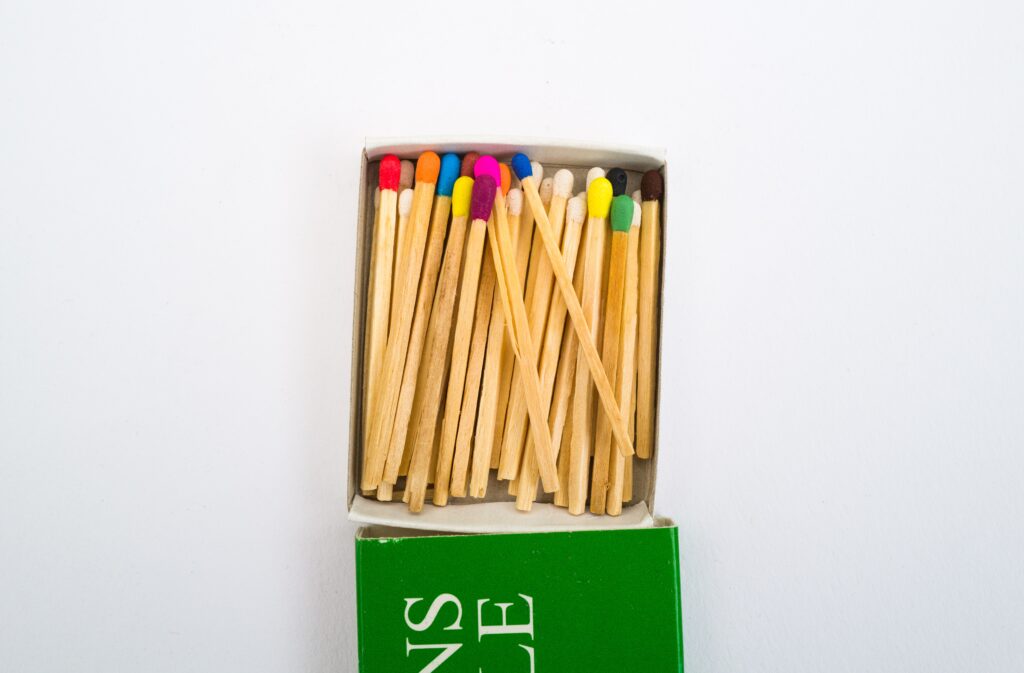My mom always wanted to be small. Many women had tried to shrink before, but none had succeeded. My mom was determined to be the first. Whatever it takes, she would say. She hoped smallness would make her happier, more lovable. She thought if she became small, she’d be healthier, live longer—maybe even forever—so she could be my mom until the end of time.
Doctors told women being small was a good thing. They were always suggesting new diets and treatments. One doctor told my mom to eat only fennel. She could blend it, boil it, chop it up—it didn’t matter, as long as she didn’t add anything that would make her big, like butter or sauce. I was nine when she tried that. The whole house smelled sweet and spicy for months. Yummy, like licorice! I would say. You can still eat licorice for now, she would say. Before you have to start shrinking.
My mom could only keep up each new attempt at smallness for a few months before some strange side effect would start to kick in. The fennel made her have her period all the time. Normally she would have been fine with that—she was okay with hurting herself if it meant achieving smallness. Except the fennel made her blood turn green. She laughed it off, but even as a kid, I could sense my mom’s fear. When she spent my fourteenth birthday poking herself with needles the length of her arm and injecting a blend of ground coral polyps and redwood bark into her body, I caught a glimpse of her crumpled face. But when she realized I was staring, she smiled. Whatever it takes.
The day I turned sixteen, she told me it was time for me to start shrinking. I needed to exercise three times a day. Try her experimental methods. I said yes. You’re joining a long, proud tradition, baby girl. The first thing I tried was staring in the mirror. I’d stare and stare, willing the big parts of myself to go away until I didn’t recognize myself anymore. Don’t worry, she’d say. You’re growing up. This is part of it.
When I went off to college, my mom got more desperate. She’d call me and say, Nothing is working. I’d say, Well, it’s never worked for anyone. It’s okay to take a break, if you want. Or, if we were having one of our fights, I’d say Give up. This is pathetic. Then she’d hang up on me. But I was a hypocrite, because I hadn’t given up on being small myself. Instead of making friends with the people in my classes who ate cheesy popcorn and sour candies and curly fries, I’d stay in my dorm and drink fern juice until I puked.
One day I got really worried. My mom called and told me it was working. She sounded different. Her voice was high-pitched, squeaky. Like a cartoon mouse or a child. I’m finally getting smaller! She’d swallowed a tapeworm. She sounded elated. I’m down five whole inches! The next week she told me she’d shrunk even more. I booked a flight home.
When I arrived, I thought she’d disappeared. It felt like when I was a kid and I’d lost my mom in the grocery store. My sinuses got hot and I felt so lonely. Then I felt a small, insistent tug on my pants. There was my mom. She was the size of a box of matches. Isn’t this great? she said. I love you so much. I’m tiny, I’m beautiful, I’m healthy. I’m immortal. I can’t wait for you to shrink too. That way it’ll be just you and me forever. Doesn’t that sound nice? Her eyes were round and expectant like a baby’s, her face youthful and soft.
Overnight, my mom got famous. She quit her job and went on a world tour. Everyone wanted to meet the first woman to succeed at becoming small. She was a scientific marvel. Doctors studied her body. They wanted to know if she’d really live forever. They took saliva and discharge samples and studied her DNA. The world was in love with her, just like she’d always wanted. But after a few months, the fame died down. Another woman found a way to become transparent.
My mom needed someone to take care of her, so I dropped out of school and moved into her house. We argued incessantly because I didn’t want to swallow a tapeworm. I was too afraid. She was disappointed in me; she thought I was a coward. At night, she slept in the lid of a shoe box. She ate only small foods—chia seeds, crumbs of dust, raindrops. I spent my days feeding her, helping her, taking care of her. I still didn’t have any friends.
The day my mom died, she could barely move. The world had completely forgotten about her and she’d grown sick with grief. I was thirty-two years old then, and she was only fifty-two. I was feeding her a pine nut when she touched the tip of my finger with the palm of her tiny hand. It was moist and undeveloped, like a salamander’s pink foot.
Be small with me, she whispered. You and me forever, remember?
I don’t know if I can, I said.
That’s probably what killed her. At her funeral, I was the only attendee. I ordered a miniature casket online and buried her outside near some wild fennel.
—
Alana Francis-Crow (she/her) is an MFA candidate at NYU’s low-residency program in fiction. She is at work on a short story collection. She lives in Los Angeles.
Photography by: Georg Eiermann
